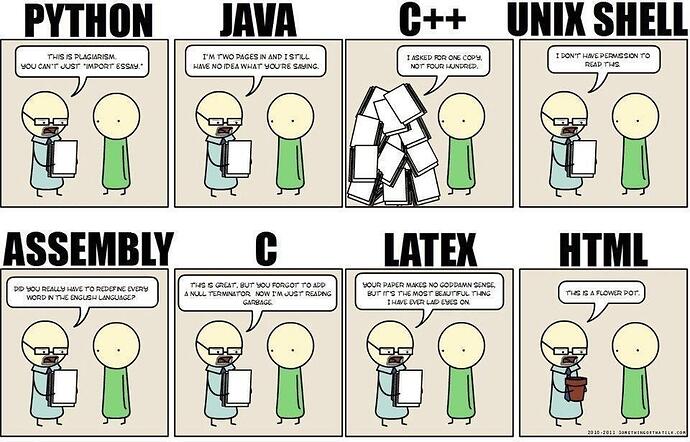Just to complete the whole joke, because we’re also happily ranting about C and C++ here.
I have never understood these “wars”. A professional developer takes the tool that does the job well and when you have cross-development on your radar then you have to always make compromises. And that’s exactly what it was originally about, “is Lianja a shiny pearl that can help us, or do they make untenable promises like Xojo, or are they problematic as an isolated solution about future development”.
This question is valid and interesting. However, we haven’t made any progress here and are engaged in “wars” about who should use what and why one option might be better than another. It’s pretty pointless, and we all know that. Yet we continue. In the end, there are no winners; at most, we all collectively lose time.
I apologize if I seem annoyed, but religious wars get on my nerves, and declaring one single programming language the holy grail unfortunately has the same effect.
We’ve all used Xojo at some point, many of us for a relatively long time. We have mastered the language and the ecosystem that addresses its problems. A once helpful tool has become one in which bugs have taken over, but unfortunately, no IT ecosystem is prepared for that.
As for my opinion on Lianja: I find the information on the website quite confusing and they look outdated. That may be unfair, but it’s my first impression. It’s difficult, if not impossible, to get a clear understanding (at least without registering). What I would be interested in is a discussion (manufacturer-agnostic) about what the tool can and cannot do, and what the costs per block are.
However, that’s not what I’m getting from this thread. It’s unfortunate, but that’s the nature of the times. I just hope that Lianja hasn’t been unfairly dismissed, as it seems that apart from @bgrommes, nobody has even looked at the details.
Edit: another meme, which fits quite well 

